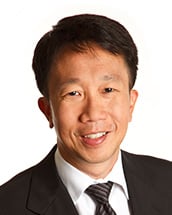In brief
The Infocomm Media Development Authority (IMDA) has launched a Code of Practice for Online Safety for App Distribution Services (ADSs) (“Code“), which requires designated ADSs to implement system-level measures to reduce the risk of exposure to harmful content for users, particularly for children.
The Code will take effect starting 31 March 2025.
In more detail
Designated ADSs
Recognising that ADSs are marketplaces for online content, the IMDA has included ADSs as another type of online communication services under the Broadcasting Act for regulation, which will allow the IMDA to direct ADSs to disable access by Singapore users to egregious content on their services.
ADSs that are designated under the Broadcasting Act will have to meet enhanced standards of online user safety, particularly for children, and curb the spread of harmful content on their services. This includes the distribution or online storage of harmful content on apps made available on their services. The list of designated ADSs can be found here (“Designated ADSs“).
Obligations under the Code
The Code complements the Code of Practice for Online Safety, which took effect on 18 July 2023 and is targeted at designated social media services.
The Code specifies six categories of harmful content, which are identical to the categories of harmful content listed in the Code of Practice for Online Safety: sexual content; violent content; suicide and self-harm content; cyberbullying content; content endangering public health; and content facilitating vice and organised crime.
The obligations of Designated ADSs under the Code include but are not limited to the following:
- User safety
- Measures for all users: Putting reasonable and proactive measures in place to do the following: (i) minimise ADS users’ access or exposure to harmful content on the ADS (e.g., content guidelines, standards; content moderation; proactive detection and removal); and (ii) mitigate the impact on ADS users that may arise from the propagation of harmful content on the ADS.
- Measures for children: The Code specifies that ADSs should also put a set of measures in place that are appropriate for children. Stricter standards must, at least, apply to certain categories of harmful content (e.g., sexual content; violent content; suicide and self-harm content; cyberbullying content). Children should also not be targeted to receive content on the ADS that the ADS provider is reasonably aware to be detrimental to children’s physical or mental well-being. Where ADSs do not restrict access by children, children must also be provided with differentiated accounts, with robust tools to minimise access or exposure to or mitigate the impact of harmful content.
- Age assurance measures: ADSs must also have age assurance systems and processes in place to establish the age or age range of a user with reasonable accuracy. We elaborate further below.
- Measures for apps with user-generated content (UGC) functionality: Unless an ADS explicitly disallows the distribution or storage of apps with UGC functionality, the ADS must ensure that the providers of those apps have content moderation measures to detect, assess and remove harmful content, as well as an in-app channel for users to report harmful and inappropriate content. ADSs must also take appropriate action against app providers that fail to resolve user reports in accordance with the ADS’ policies.
- User reporting and resolution
- Users must be able to report harmful and inappropriate content on ADSs. Reporting and resolution mechanisms must be effective, transparent, easy to access and easy to use.
- Reports must be assessed and acted upon in a timely and diligent manner proportionate to the severity or imminence of the potential harm, especially for content and activity relating to child sexual exploitation and abuse material and terrorism.
- Accountability
- ADS users must have access to clear and easily comprehensible information that enables them to assess the level of safety measures afforded by ADS providers and make informed choices.
- ADS providers must submit to the IMDA annual online safety reports to be published on the IMDA’s website, which must include certain types of information as specified in the Code (e.g., actions taken by the ADS provider in response to reports made by ADS users in Singapore).
Age assurance measures
In particular, the Code introduces age assurance requirements for Designated ADSs, which refer to systems or processes to establish a person’s age or age range, including age estimation and age verification. This is in line with the approach adopted by various governments and regulators worldwide, to ensure that online services are age-appropriate and tailored to children.
The IMDA has indicated that it intends to engage Designated ADSs in the coming months on the implementation of age assurance measures.
Designated ADSs will also be required to submit an implementation plan to the IMDA detailing how it intends to comply with the age assurance requirements (including timelines for implementation). For a start, the IMDA has stated that Designated ADSs are expected to prevent children from accessing its highest age-rated apps (e.g., 18+).
The implementation plan and timeline are subject to the IMDA’s agreement.
Non-compliance with the Code
If the IMDA is satisfied that a Designated ADS has failed to satisfy its duty to take all reasonably practicable steps to comply with the Code, the IMDA may do the following: (a) order the defaulting Designated ADS to pay a financial penalty of any amount the IMDA thinks fit (up to a maximum of SGD 1 million); or (b) direct the defaulting Designated ADS to take any steps, whether in or outside Singapore, and within a specified time, that may be necessary to remedy the failure. A defaulting Designated ADS that does not comply with a direction shall be guilty of an offence and liable on conviction to a fine of up to SGD 1 million, and in the case of a continuing offence, to a further fine of up to SGD 100,000 for every day (or part of) that the offence continues after conviction.
* * * * *
For further information and to discuss what this Code might mean for you, please get in touch with your usual Baker McKenzie contact.
* * * * *

© 2025 Baker & McKenzie. Wong & Leow. All rights reserved. Baker & McKenzie. Wong & Leow is incorporated with limited liability and is a member firm of Baker & McKenzie International, a global law firm with member law firms around the world. In accordance with the common terminology used in professional service organizations, reference to a “principal” means a person who is a partner, or equivalent, in such a law firm. Similarly, reference to an “office” means an office of any such law firm. This may qualify as “Attorney Advertising” requiring notice in some jurisdictions. Prior results do not guarantee a similar outcome.








